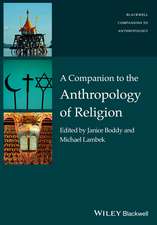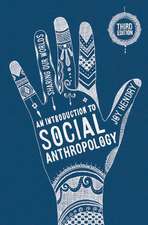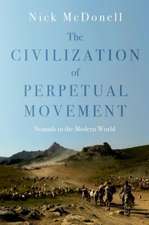Encountering Nationalism: 21st Century Sociology
Autor J Purien Limba Engleză Paperback – 17 sep 2003
Abstract arguments are bolstered by clear and specific examples drawn from momentous events and from the well of everyday life, such as the aftermath of September 11, beauty pageants, ethnic conflicts, and sexual respectability. Encountering Nationalism is an engaging introduction to the diverse meanings of nationalism and its most important aspects.
| Toate formatele și edițiile | Preț | Express |
|---|---|---|
| Paperback (1) | 333.07 lei 6-8 săpt. | |
| Wiley – 17 sep 2003 | 333.07 lei 6-8 săpt. | |
| Hardback (1) | 848.89 lei 6-8 săpt. | |
| Wiley – 17 sep 2003 | 848.89 lei 6-8 săpt. |
Preț: 333.07 lei
Nou
Puncte Express: 500
Preț estimativ în valută:
63.75€ • 66.93$ • 52.66£
63.75€ • 66.93$ • 52.66£
Carte tipărită la comandă
Livrare economică 30 ianuarie-13 februarie 25
Preluare comenzi: 021 569.72.76
Specificații
ISBN-13: 9780631231066
ISBN-10: 0631231064
Pagini: 256
Dimensiuni: 152 x 225 x 19 mm
Greutate: 0.38 kg
Editura: Wiley
Seria 21st Century Sociology
Locul publicării:Chichester, United Kingdom
ISBN-10: 0631231064
Pagini: 256
Dimensiuni: 152 x 225 x 19 mm
Greutate: 0.38 kg
Editura: Wiley
Seria 21st Century Sociology
Locul publicării:Chichester, United Kingdom
Public țintă
undergraduate and graduate students studying the subject of nationalism taught in departments of sociology; anthropology, political science, international relations and cultural studiesNotă biografică
Descriere
In exploring the subject of nationalism, this work asks three broad questions: what do we mean by nationalism and what are its important cultural aspects?; why is it important to consider issues of nationalism from a critical viewpoint?; and what are the limitations of the construct of nationalism?



















